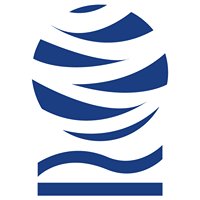123 Computer Engineering

Computer engineering is a specialty incorporating informatics and computer network technologies, some parts of electronics and software engineering necessary for the computer systems design and development, i.e. their software and hardware.
Experts in Computer engineering��are engaged in various aspects of computer systems: design of software-hardware components of computer systems, computers and supercomputers, software development, computer network infrastructures administrating, DevOps, database administration and support.
We will be happy to answer all your questions.
Viber, Telegram:��0985442931
Email: ki123tntu@gmail.com
Training in the specialty 123 “Computer Engineering” is carried out at the
What will I study?
Main academic disciplines for specific purposes:
- Computing Techniques and Algorithms
- Computer Logic
- Programming
- Software Architecture and Design
- Fundamentals of the Internet of Things
- Database Management
- Software Engineering
- Java Programming
- Computer Electronics and Circuitry
- Embedded Systems
- Computer Networks
- Computer System Modeling
- Computer Architecture
- Parallel and Distributed Computing
- Computer Systems
- System Programming
- System Software
- Technologies of Computer System Design
- WEB-technologies
- Information Security in Information and Communication Systems
- Fundamentals of Artificial Intelligence Design
- Digital Signal Processing
- Digital Communications Systems
- Testing and Diagnostics of Software and Hardware Tools
- ��
The main tasks that will be able to solve a graduate of computer engineering in the future:
- Develop software for embedded and mobile computer systems;
- Develop software for high performance computer systems;
- Design, implement and support high performance computer systems and cloud services;
- Develop software for Big Data processing;
- Carry out administration and DevOps tasks;
- Develop robotic systems;
- Design, implement and support computer networks;
- Develop operating systems’ components and system software;
- Install and support software and hardware computer systems;
- Design microprocessor and microcontroller devices;
- Carry out scientific research;and others.
Where can I be employed?
Main possible positions after graduation
- Software developer;
- DevOps (Development and Operations);
- Engineer-programmer;
- Network administrator;
- System administrator;
- System programmer;
- System analyst;
- Backend developer;
- Computer systems and networks designer;
- Computer systems and networks analyst;
- Data scientist;
- Databases administrator;
- Security administrator;
- System engineer.
Fields where a graduate can work in:
- ІТ-���dz��貹�Ծ����;
- Internet-providers;
- Mobile communication providers;
- Software development and support companies;
- Hardware development and circuit engineering complexes manufacturers;
- ІТ departments of different enterprises;
- Hardware and software vendors system integrators;
- State and government agencies, cyberpolice.
Перелік сертифікатів ЗНО та вступних випробувань для вступу на освітню програму "комп'ютерна інженерія"
за державним замовленням:
Українська мова
К1=0,3
Математика
К2=0,3
Фізика або Іноземна мова або Історія України або Хімія або Біологія або Географія
К3=0,3
Середній бал атестату
К4=0,1

 Member of European University Association
Member of European University Association